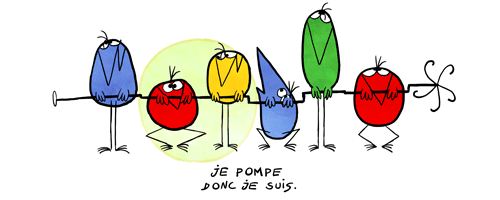They laid out their principles to imagine this project together:
Creative professions and manual skills are universal. They facilitate the dialogue between men and encourage mutual recognition. They are a part of each and everyone’s cultural identity, thus playing an essential role in the writing of new, collective and shared narratives.
An object tells a story. It can raise questions and challenge the norm. The design is a creative process that is esthetical, functional, economical, and socio-political all at once. The designer starts by analysing practical and emotional needs. « The designer does not get asked to draw a bridge but rather to draw a way of crossing the river. ».
The new working methods that come with collaborative design are particularly focused on knowledge and skills crossing over, in order to trigger new potential for creativity, production and more widely speaking, to encourage sociability. Collaborative design removes any sense of hierarchy between individuals and the division of know-how; it breaks the social divide at work and enables for a better grasp of the different stages of production, allowing for everyone to share their competencies with everyone else.
The participation to the design process facilitates its appropriation, from the problem to the solution, and it enables each participant to get involved more fully.
Learning through play is a useful tool to motivate people, to reignite their interest and to develop their team spirit.
The philosophy of free culture, inherited from the free software movement, relies on a bank of independent initiatives of solidarity, and on exchanges around the aptitudes and opportunities for all; it is also based upon the democratisation of knowledge, education and means of production, as well as on a distribution of income that is proportional to the work completed.

Various important questions on the way our society is evolving were raised:
The changes caused by the NTIC: the mass treatment of digital data and the improved performance of 3D printers are fundamentally changing design and production methods. Will they lead to a separation between the design and manufacturing trade, or, on the contrary, will they encourage the shared practice and the emergence of new creative methods through the Open source?
The local democracy crisis: can the Open design have an impact on the way citizens engage and get involved with fundamental social issues, such as healthy eating or the question of identity ?

Putting the classic economic models into question: cooperation rather than competitiveness; the creative commons rather than royalty payments: are these simply militant choices, or do they incarnate models of research/development and income which are effective, ethical and fair?
What new forms of cooperation, what new methods of production and of communal sharing would help our society to evolve, as it is currently experiencing various crises?
And as always, you can help us and contribute on this page here
